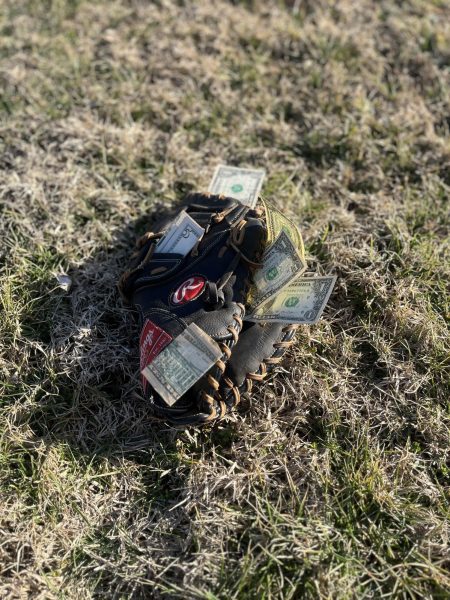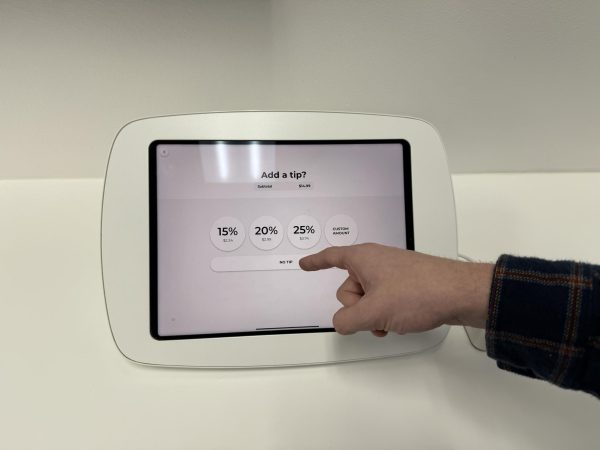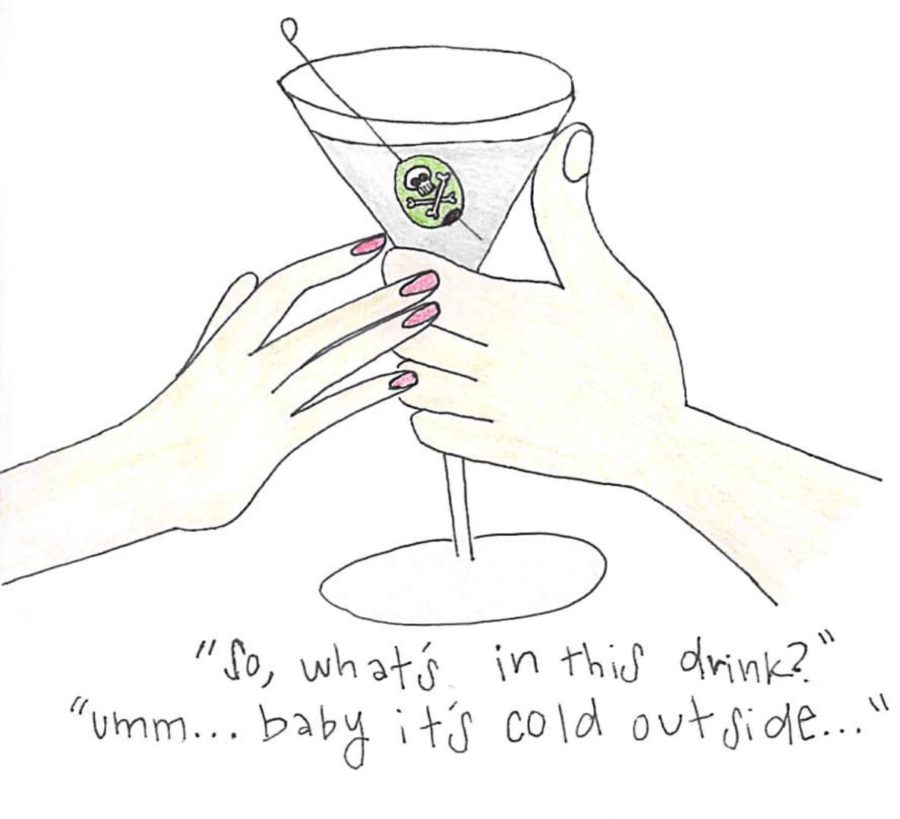Opinion: Ban On Holiday Song Requires More Context
Photo Illustration by Jilian Bunderson.
CHRISTMAS AND COERCION: two words that you didn’t expect to come together this holiday season. Yet, national controversy arose earlier this month when radio station WDOK Christmas 102.1 in Cleveland, pulled Frank Loesser’s “Baby It’s Cold Outside” from its rotation after a listener poll deemed the song inappropriate because of lyrics that seemingly promote sexual harassment.
On the station’s website, Glenn Anderson, radio host, explained that, “Now, I do realize that when the song was written in 1944, it was a different time, but now while reading it, it seems very manipulative and wrong. The world we live in is extra sensitive now, and people get easily offended, but in a world where #MeToo has finally given women the voice they deserve, the song has no place.”
I think Anderson’s motives are sound. The virality of the #MeToo movement allowed victims of sexual abuse to have the spotlight this year so they could tell their stories, spread awareness and gain support. The elections of Associate Justice Brett Kavanaugh and several midterm election candidates were all affected by their stances on #MeToo. No matter what your opinion is, #MeToo has altered the current political theater.
However, like many debates of 2018, this is truly a debate of context not of political correctness.
Anderson is correct. A time period is no justification for unwanted sexual advances. Loesser wrote the song in 1944 for him and his wife to perform at parties, before selling the rights to MGM to be used in the 1949 film, “Neptune’s Daughter.” Ever since, covers of the song have been charting on the Billboard Best Sellers.
But let’s take a closer look at the film that popularized the song.
“Neptune’s Daughter” is a musical that stars Esther Williams, Ricardo Montalbán, Betty Garrett and Red Skelton. The scene in which the song is performed perfectly exemplifies what people picture the song is about: Montalbán’s character sleazily trying to convince Williams’ character to stay the night, before becoming more physical, all the while Williams firmly denies all advances and attempts to leave.
A Youtube search for this scene will show you an uncomfortable Williams being embraced by Montalbán. But if you watch the full scene, you’ll find that Williams is not the only one who’s being harassed.
Once the whole song is sung, we see Garrett and Skelton going through a similar situation – with one key difference. The roles of aggressor and victim are switched. Garrett tries to convince Skelton to let her stay the night, trying to get him to drink more and even briefly chasing him out of his own apartment. Skelton vehemently denies her advances.
In its true context, this scene teaches two genuine lessons. The actors performances not only provide commentary on sexual harassment, but also show that men can be victims of unwanted advances.
While I don’t always agree with political correctness, I understand the necessity to remove problematic content from pop culture. But the true context of the song isn’t even problematic. Why an almost 70 year old song is suddenly the prime example of rape culture in the music business is beyond me.
Uneducated voices have cavilled that 2018 should be the end of “Baby It’s Cold Outside.” The stink pieces spreading these claims have yet again taken attention away from victims’ stories that actually matter. But for the truly insightful, the song will always sing a more tongue in cheek message of consent and respect.
Your donation will support the student journalists of Marquette High School. Your contribution will allow us to purchase equipment and cover our annual website hosting costs. You may become a PATRON by making a donation at one of these levels: White/$30, Green/$50, Blue/$100. Patron names will be published in the print newsmagazine, on the website and once per quarter on our social media accounts.

Jackson Estwanick, senior, was the Executive Producer of MHSNews and the Messenger from 2018 to 2020. He also cadet taught Intro to Digital Media Production....







